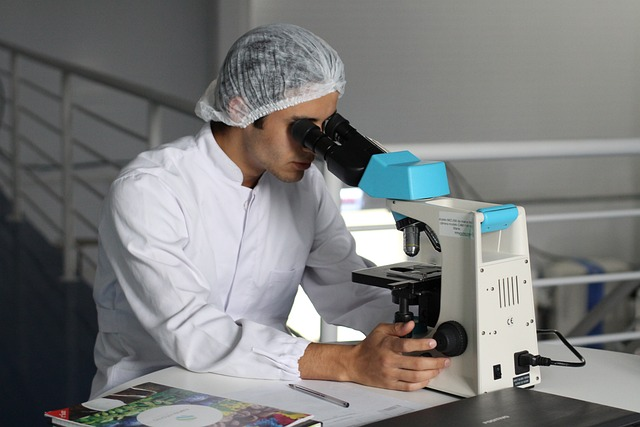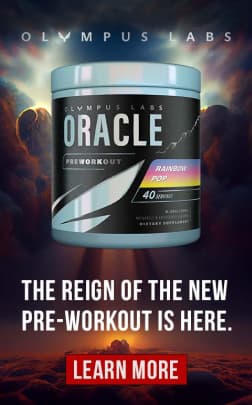Discovering the Benefits of Phosphatidic Acid Supplements
Posted by Leonard Shemtob on May 01, 2023
Discovering the Benefits of Phosphatidic Acid Supplements
Phosphatidic Acid (PA) is a naturally occurring lipid molecule that has recently gained attention in the sports nutrition world. It plays complex roles in mediating muscle protein synthesis and cell processes, but research suggests it may have several benefits when taken as a supplement. Studies have shown that PA supplementation can increase strength, improve body composition, and reduce cortisol levels in humans. Furthermore, taking PA alongside other supplements, such as creatine and beta-alanine, can further enhance muscle growth and protein synthesis.
This article delves into the potential effects and implications of taking phosphatidic acid supplements, exploring the efficacy of PA7, potential side effects, and recommended dosage. With this review, readers will be able to gain valuable insight into the power of Phosphatidic Acid for athletic performance.
Short Summary
- Phosphatidic Acid (PA) supplementation has been demonstrated to increase muscle growth, strength, and exercise performance.
- It is advised to take 750mg of PA per day, divided into two doses on workout days and one dose on non-workout days.
- A balanced diet and lifestyle should be maintained for optimal results when supplementing with PA.
- The #1 Phosphatidic acid supplement is available here
What is Phosphatidic Acid (PA)?

Phosphatidic acid PA is a phospholipid that is naturally produced by an enzyme called phospholipase D. It has been shown to directly activate mTOR signaling, which in turn triggers muscle protein synthesis in response to resistance exercise. This results in quicker recovery and reduced muscle soreness. Furthermore, studies have demonstrated that a daily dose of 400mg of phosphatidic acid can result in a notable decrease of cortisol levels. Cortisol is a hormone that can break down muscle tissue, so reducing its levels can help maintain muscle mass.
Phosphatidic acid also stimulates the mammalian target of rapamycin (mTOR) signaling pathway, resulting in an increase in muscle protein synthesis. This leads to improved recovery times and reduced muscle soreness. Additionally, it has been demonstrated to regulate the expression of a specific set of genes that influence muscle protein breakdown, thus facilitating quicker recovery and reduced muscle soreness.
Research has also found that phosphatidic acid has a high rate of absorption when taken orally, making it an effective supplement for human consumption. Cabbage, radishes, and lecithin are all known to contain phosphatidic acid. It is recommended to take PA before exercise for optimal results. It is suggested to consume 750mg of Phosphatidic Acid daily.
Research on Phosphatidic Acid

The primary focus of the research on phosphatidic acid is to examine the impact of phosphatidic acid supplementation on various aspects of physical performance in resistance trained men. Studies have yielded inconclusive results on the effects of PA supplementation on muscle growth and strength in trained men, though it may be beneficial for short-term and intense training. Supplementing with PA may offer resistance trainees the potential benefit of increased skeletal muscle hypertrophy, although it is possible that low doses of PA may not yield a significant increase in muscle growth.
The article ultimately concludes that PA supplementation is more effective in stimulating muscle growth than weight lifting alone. PA has been demonstrated to possess anabolic potential in human subjects, with studies indicating that increased PA intake can result in a significant increase in muscle mass, with an average of four pounds gained over an 8-week period. The study has also indicated that PA can be effective in increasing lower body strength, upper body strength, and lean body mass.
The exact extent of PA uptake by muscle cells and its effect when ingested orally is not yet known. Studies have demonstrated that combining PA and whey protein can lead to an increase in muscle protein synthesis, though the anabolic effect of whey protein was blunted when both were used together.
A follow-up study conducted by an independent research team in 2013 found that participants who engaged in progressive resistance training experienced a twofold increase in muscle mass compared to the control group.
Mediator Phosphatidic Acid
Phosphatidic acid (PA) is a lipid mediator associated with stimulating muscle protein synthesis. It does this by activating the mammalian target of rapamycin (mTOR). It is thought to be a potential anabolic supplement. Mediator phosphatidic acid has been demonstrated to be more effective than other sources. It is the most effective form of PA due to its superior bioavailability in human clinical trials.
This makes it more effective than other forms of PA. Mediator phosphatidic acid has also been demonstrated to possess a high level of bioavailability. As such, it is one of the most effective forms of PA when it comes to promoting mTOR signaling and muscle protein synthesis.
Benefits of Phosphatidic Acid

PA supplementation has numerous benefits which make it a great addition to any nutritional and exercise regimen. PA supplementation can provide a significant boost to muscle growth when combined with a well-structured exercise and nutrition regimen. Studies have demonstrated that PA supplementation, when taken in combination with other phospholipids such as phosphatidylserine, can significantly improve cognitive function.
Additionally, PA supplementation has been shown to effectively reduce muscle breakdown. However, it has not been found to have a significant impact on anabolic hormone levels. PA supplementation has also been found to result in a decrease in body fat when combined with a proper diet and exercise regimen.
This is particularly beneficial for those looking to recomp, or simultaneously increase muscle mass and reduce body fat.
How to Take Phosphatidic Acid
The suggested daily intake of phosphatidic acid (PA) is 750mg. If used for bodybuilding purposes, it is recommended to take 450 milligrams prior to training and 300 milligrams immediately after. On non-workout days, a dosage of 450 milligrams should be taken in the morning and 300 milligrams in the afternoon. It is advised to take PA on an empty stomach rather than with food.
Phosphatidic acid supplementation has a variety of benefits, including improved muscle mass, strength, and endurance. It is important to note that not enough research has been conducted to determine the long-term effects of PA ingestion. As such, it is recommended to consult with a healthcare professional before beginning any supplementation program.
Additionally, it is important to be aware of potential side effects of phosphatidic acid supplements. By following the suggested dosage guidelines and taking the necessary precautions, individuals can unlock the potential benefits of PA.
Is Phosphatidic Acid Safe?
Clinical studies have revealed no adverse effects from 8 weeks of PA supplementation. This suggests that PA is a safe supplement to take in the short-term, however, further research is needed to determine the safety of PA supplementation in the long-term.
In addition, PA is a secure option for female users. It is important to note, however, that dosage levels should be monitored carefully when taking PA supplements and that over-consumption may have negative impacts on overall health and wellness.
Can You Take Phosphatidic Acid With Other Supplements?
Creatine and Beta-Alanine are both suitable nutritional supplements to be taken in conjunction with Phosphatidic Acid. The concurrent use of PA with other supplements, such as creatine and beta-alanine, has been shown to be effective in promoting muscle growth and protein synthesis.
The combination of PA with creatine and beta-alanine has been shown to be beneficial in promoting muscle growth and increasing protein synthesis. The article in question only mentions creatine and beta-alanine as supplements that can be taken with PA to optimize muscle growth and protein synthesis.
Therefore, those looking to further enhance the effects of PA may consider taking creatine and beta-alanine supplements in conjunction with PA to reap the full benefits.
Review of PA7 supplement & PA7 supplement side effects
PA7 is a phosphatidic acid supplement that claims to boost muscle protein synthesis, stimulate mTOR activity, and facilitate fat loss. Where PA7 lost us, is they offer only a 10 day supply per bottle. Who would only take this supplement for 10 days? The minimum should be at least 30 days. Further looking at the reviews PA7, you don't see one written review but rather only stars. Don't worry we have a great recommendation for an effective properly dosed PA supplement just below this section!
At this time, there are no reported adverse reactions associated with PA7 supplement. However, as with any dietary supplement, it is important to adhere to the recommended dosage and to consult with a healthcare professional prior to use.
While this supplement is not known to cause any specific side effects, it is still important to pay attention to any changes, such as digestive upset or headaches, that may occur while taking the supplement.
What is the best Phosphatidic acid supplement?
The best Mediator Phosphatidic Acid supplement on the market today is Phosphatidic Acid XT by SNS. Why? well the dosage for one thing is spot on, secondly it contains ApiPure, AstraGin, Bioperine and Senactiv. These other ingredients that SNS made sure to put in work to enable better absorption, improve gains and maximize the effects of phosphatidic acid. The additional ingredients also improve recovery, reduce inflammation and improve strength gains.
Phosphatidic Acid Bodybuilding
Phosphatidic acid has been demonstrated to directly activate the mammalian target of rapamycin (mTOR), which in turn leads to an increase in muscle protein synthesis and thus an enhancement of muscle growth and strength. It is advised to consume 750mg of phosphatidic acid daily for bodybuilding purposes.
The combination of phosphatidic acid with a balanced diet and regular exercise has been shown to amplify the supplement's effects, resulting in improved muscle growth and strength. A study published in the International Society of Sports Nutrition found that supplementing with phosphatidic acid increased muscle protein synthesis, lean muscle mass, muscle thickness, and leg press strength in resistance-trained men.
Another study found that supplementing with phosphatidic acid before resistance exercise resulted in greater increases in muscle thickness and strength, as well as improved exercise performance. Furthermore, a study published in the Society of Sports Nutrition found that supplementing with phosphatidic acid before resistance exercise resulted in greater increases in lean body mass, muscle strength, and resistance exercise-induced hypertrophy.
The benefits of phosphatidic acid supplementation are clear: it has been shown to increase muscle protein synthesis, improve exercise performance, and increase muscle mass and strength. When combined with a balanced diet and regular exercise, phosphatidic acid supplementation can help bodybuilders achieve their goals.
Wrap Up
Research has demonstrated that Phosphatidic Acid (PA) can be beneficial in terms of increasing muscle growth and strength, reducing recovery time post-exercise, alleviating muscle soreness, and managing gastrointestinal disorders. It is advised to take 750 milligrams of PA daily, before engaging in physical activity.
The findings of the research team of the International Society of Sports Nutrition are encouraging, as the eight-week training program for the significant group showed significantly greater vertical jump performance, muscle growth and strength compared to the placebo and control groups. However, it is important to note that further investigation is necessary regarding PA supplementation in order to gain a better understanding of its effects.
It is also important to maintain a balanced diet and lifestyle in order to maximize the benefits of PA supplementation.
Summary
The potential benefits of Phosphatidic Acid (PA) supplementation are undeniable. Although dosage depends on the individual and should be monitored, PA has been shown to be an effective supplement in promoting muscle growth and strength, as well as aiding in body recomposition. Additionally, its ability to reduce cortisol levels and modulate genes associated with muscle breakdown adds to its status as a powerhouse supplement for the aspiring bodybuilder.
However, it is important to remember that taking any health supplement can carry potential risks along with various side effects. Before partaking in any form of supplementation, one should always consult with their doctor or physician to ensure that they are using supplements safely and responsibly. Moreover, it is still essential to keep in mind that a healthy diet and lifestyle remain the best ways for achieving optimal fitness results.
In conclusion, the International Society of Sports Nutrition has conducted extensive research and studies on the possible benefits of phosphatidic acid supplementation, and it remains a promising endeavor for those looking to increase their performance and build lean muscle. With adequate monitoring and supervision, PA can help athletes reach new heights in their strength training and bodybuilding regimes.
Ready to try Phosphatidic acid supplementation? Get SNS Serious Nutrition Solutions Phosphatidic Acid XT now!
Frequently Asked Questions
What does phosphatidic acid do to the body?
Phosphatidic acid (PA) supplementation has been shown to influence a wide range of biochemical and physiological processes, such as increased muscle protein synthesis and muscle growth when combined with exercise and nutrition. It also provides potential health benefits, including improved cardiovascular and mental cells’ functioning.
PA is associated with multiple body functions that can benefit your overall health and fitness. It helps increase muscle protein synthesis, which leads to muscle growth and improved strength when combined with exercise and proper nutrition. Additionally, PA has beneficial effects on cardiovascular health and cognitive functions.
Does phosphatidic acid actually work?
Overall, the research suggests that phosphatidic acid does work. Supplementation with PA can increase muscle mass, improve athletic performance and reduce muscle soreness, allowing for improved recovery time after exercise.
This suggests that PA is an effective supplement for athletes looking to improve their performance and recovery time. It is also beneficial for those looking to build muscle mass.
Does phosphatidic acid affect testosterone?
Evidence has shown that phosphatidic acid affects the production of testosterone. Studies have demonstrated that agents which increase phosphatidic acid levels inhibit LH-induced testosterone production, indicating that phosphatidic acid plays a role in regulating testosterone production.
Is phosphatidic acid illegal?
Based on the available evidence, phosphatidic acid is not an illegal substance. It is safe and natural to use, so athletes who must abide by drug tests need not worry about it flagging up any banned or illegal compounds.
Therefore, it is safe to conclude that phosphatidic acid is not illegal.
Does phosphatidic acid have side effects?
Yes, phosphatidic acid does have potential side effects which may include nausea, stomach upset, and diarrhea.
It is important to follow the recommended guidelines of usage to minimize the risk of experiencing any adverse side effects.
Sources:
- "Mediator Phospholipidomics in the Nervous System" by Ivan Gomez-Ospina et al. (2021). This review article provides an overview of the role of mediator phospholipids, including PA, in the nervous system.
- "The Role of Mediator Phosphatidic Acid in Intestinal Inflammation and Cancer" by Yan Zhang et al. (2021). This article discusses the involvement of PA in intestinal inflammation and cancer development.
- "Phosphatidic Acid: An Emerging Mediator of Stress Responses in Plants" by Meng Zhang et al. (2021). This review article discusses the role of PA in plant stress responses and its potential as a target for improving crop yields.
- "The Role of Phosphatidic Acid in Insulin Resistance and Type 2 Diabetes" by Yu Wang et al. (2019). This article discusses the involvement of PA in insulin resistance and the development of type 2 diabetes.
- "Mediator Lipids: Local Modulators of Oxylipin Biosynthesis and Action" by Christiane Karg et al. (2018). This review article discusses the role of mediator lipids, including PA, in the biosynthesis and action of oxylipins, which are important signaling molecules in inflammation and other physiological processes.
- https://www.cheminutra.com/mediator-pa/
Written and Sponsored by Leonard Shemtob
Leonard Shemtob is President of Strong Supplements. Leonard has been in the supplement space for over 20 years, specializing in fitness supplements and nutrition. Leonard appears on many podcasts, written over 100 articles about supplements and has studied nutrition, supplementation and bodybuilding.
Leonard's articles have been published in many top publications around the web. Leonard enjoys weight training, playing basketball and yoga, and also enjoys hiking. In his free time he studies and works on improving himself. For more detailed information, visit his official blog.
Related Articles
Learn More About Natural Anabolics



